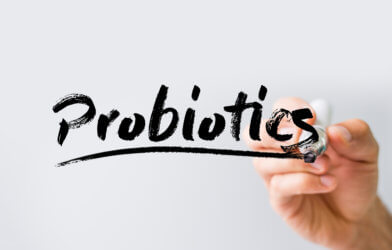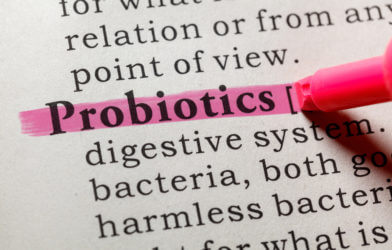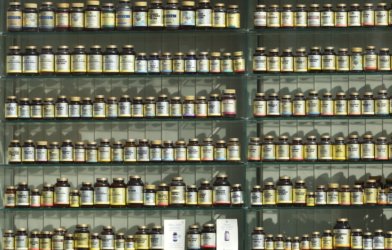Some of history’s most revered leaders suffered from depression; often, it was severe. Abraham Lincoln refused to carry a pocketknife because he suffered from depression, and feared he would harm himself. Uncharacteristically, he had a knife in his pocket on the night he was assassinated. Winston Churchill called his depression “the black dog.” At times, it immobilized him. There were no pharmaceuticals for depression then. If only they knew then what we know now about the microbiome-gut-brain axis, as well as probiotics and their influence on intestinal flora.
A research team from the University of Basel in Switzerland, and the University Psychiatric Clinics Basel (UPK) reports that probiotics can support treatment with antidepressant medication.
It is known that patients with depression have an above-average prevalence of gastrointestinal problems. When the intestinal flora of people with depression is implanted in mice with no intestinal flora, they are less energetic and are indifferent to their environment — symptoms consistent with depression. Researchers surmised that the composition of the bacterial community in the gut plays an important role in depressive symptoms.
Dr. André Schmidt and Professor Undine Lang systematically investigated the effects of probiotics on patients with depression. They used a double-blinded, randomized methodology. All participants were inpatients at the University Psychiatric Clinics Basel (UPK) and were given a probiotic (21 subjects) or a placebo (26 subjects) for 31 days, in addition to antidepressants. The researchers carried out a series of tests on the participants immediately before treatment, at the end of 31 days, and again four weeks later, at the end of treatment.
Depressive symptoms decreased in all participants. There was a greater improvement in the subjects in the probiotic group than in the placebo group.
In addition, the composition of their intestinal flora changed, at least temporarily, in the probiotic group. Stool samples revealed an increase in lactic acid bacteria at the end of treatment – an effect associated with a reduction in depressive symptoms. However, the level of these health-promoting gut bacteria fell over the following four weeks. “It may be that four weeks of treatment is not long enough and that it takes longer for the new composition of the intestinal flora to stabilize,” explains Anna-Chiara Schaub, co-leading the study, in a statement.
The researchers investigated the effect of probiotics on the brain using magnetic resonance imaging (MRI). In patients with depression, some brain regions for processing emotions behave differently than in individuals with good mental health. After four weeks of probiotics, this brain activity normalized as would be expected in a person without depression. Brain activity did not normalize in the placebo group.
“Although the microbiome-gut-brain axis has been the subject of research for a number of years, the exact mechanisms are yet to be fully clarified,” says Schaub. “With additional knowledge of the specific effect of certain bacteria, it may be possible to optimize the selection of bacteria and to use the best mix in order to support treatment for depression.” Schaub cautions against using probiotics as the only treatment for depression.
The research is published in the journal Translational Psychiatry.











